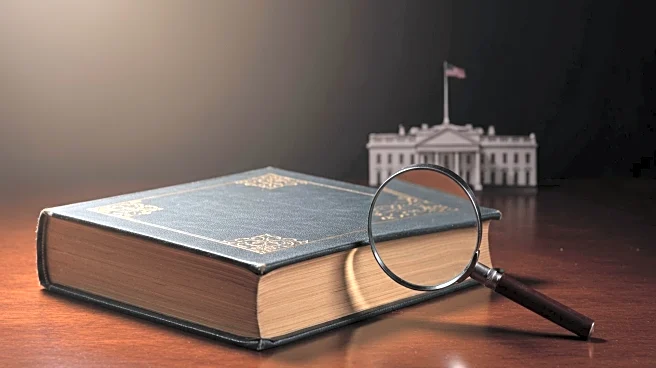What's Happening?
President Trump has confirmed that the White House is conducting a review of the Smithsonian museums, expressing frustration over their portrayal of dark aspects of American history, including slavery. This review aims to assess how historical narratives are presented in national museums and whether they align with the administration's perspectives. The review has sparked discussions about historical representation and the role of museums in educating the public about America's past. Critics argue that altering historical narratives could undermine educational efforts and distort public understanding of history.
Why It's Important?
The review of Smithsonian museums by the White House highlights ongoing debates about historical representation and the influence of political perspectives on educational institutions. Museums play a crucial role in preserving and presenting history, and changes to their narratives could impact public understanding and cultural education. The review raises concerns about potential censorship and the politicization of historical narratives, which could affect how future generations perceive America's history. This development underscores the importance of maintaining academic integrity and independence in cultural institutions.
What's Next?
The outcome of the review could lead to changes in how historical events are portrayed in Smithsonian museums, potentially sparking public debate and criticism. Stakeholders, including historians, educators, and cultural organizations, may advocate for preserving the integrity of historical narratives and resisting political influence. The review may prompt discussions about the role of museums in shaping public understanding of history and the need for balanced and accurate representations. Future actions by the administration could influence broader cultural policies and the relationship between government and educational institutions.










